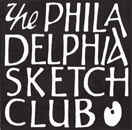12–13th & Locust station
PATCO Speedline stations in PhiladelphiaRailway stations in PhiladelphiaRailway stations in the United States opened in 1953Railway stations located underground in Pennsylvania

12–13th & Locust station is a PATCO Speedline subway station in Washington Square West in Center City, Philadelphia. The station has a single island platform, with a fare mezzanine above. The mezzanine level connects to the Center City Pedestrian Concourse, which connects subway and regional rail stations in the Center City area. PATCO plans to make the station accessible to people with disabilities, adding elevators between street level and the mezzanine, and between the mezzanine and the platform. The project is expected to be completed in Fall 2022.
Excerpt from the Wikipedia article 12–13th & Locust station (License: CC BY-SA 3.0, Authors, Images).12–13th & Locust station
Locust Street, Philadelphia Center City
Geographical coordinates (GPS) Address Nearby Places Show on map
Geographical coordinates (GPS)
| Latitude | Longitude |
|---|---|
| N 39.9477 ° | E -75.1607 ° |
Address
Locust Street 1144
19103 Philadelphia, Center City
Pennsylvania, United States
Open on Google Maps









